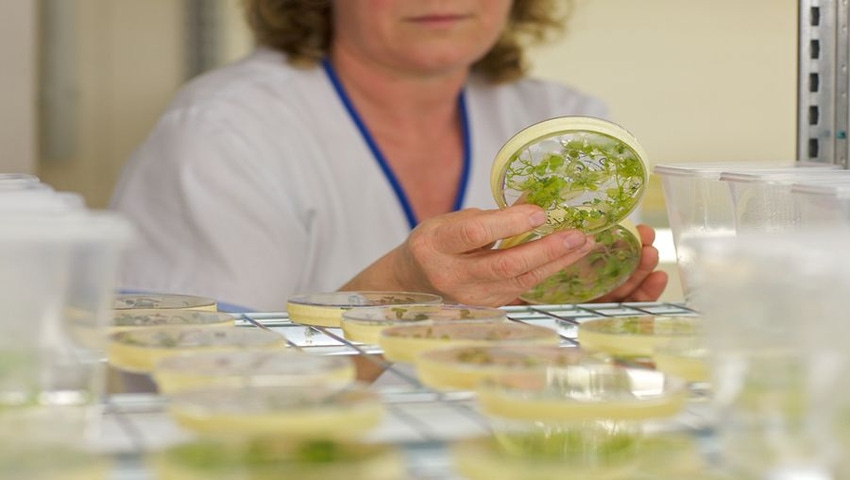In vitro studies with isolated cells or tissues alone are not adequate to substantiate a claim. However, cell based assays can confirm the claim substantiation that is based on previous performed clinical studies.
September 27, 2016

The dietary supplement industry needs to be in compliance with FDA regulations.
The Federal Food, Drug and Cosmetic Act (FD&C, 21 U.S.C. 343(r)(6)) requires that a manufacturer of a dietary supplement should make only truthful and not misleading structure/function, nutrient deficiency and general well-being substantiation claims. These substantiation claims must be based on competent and reliable scientific evidence about the benefits and safety of dietary supplements. The competent and reliable scientific evidence is characterized as "tests, analyses, research, studies or other evidence based on the expertise of professionals in the relevant area, that has been conducted and evaluated in an objective manner and using procedures to yield accurate and reliable results."
The meaning of the claims should ensure that the evidentiary basis for substantiation is appropriate with specific identified endpoints that were evaluated and replicated in peer-reviewed scientific studies. These studies must adhere to several criteria including study population, presence of a placebo control group, data collection, proper statistical analysis and outcome measures. Therefore, intervention studies can provide causal evidence to substantiate the effect of a dietary supplement in humans as compared to observational studies that have limited ability to provide causal evidence.
In spite of the fact that animal and in vitro cell-based studies are not sufficient for a claim substantiation themselves, these tests are gaining more importance in the identification of high-quality, efficient dietary supplements.
The label on dietary supplements can truthfully declare a scientifically verified substantiation claim leading to the consumer perception of the functional efficacy of this specific dietary supplement. However, these claims refer to previous studies that were performed, in some cases, with different ingredients than the supplement that carries the claim. Though this is not a problem with characterized vitamins and purified compounds, problems arise with botanical extracts. Since the content of botanical extracts depends on the region, growing conditions, extraction process and storage, these extracts can be dissimilar. Although the chemical analysis could confirm the presence and amount of the “major active" compounds, this analysis, although crucial for the extract characterization, is not satisfactory for confirming the efficacy of the particular extract. One of the reasons is the presence of unidentified additional compounds in the extract that can inhibit the efficacy of the “major active" compound. Another reason is that the botanical extracts contain several compounds contributing to the efficacy of the particular extract. Therefore, biological assays can overcome this problem by evaluating activity/efficacy of these botanical extracts in cell culture assays in vitro.
For example, extracts from turmeric, which contains curcuminoids, have been evaluated in cell culture, preclinical and clinical studies. Based on the scientific peer-reviewed clinical studies, turmeric extracts are marketed for the improvement of joint-damaging effects of arthritis. Mechanistically, these extracts suppress inflammation. However, not all curcuminoids are created equal; therefore, curcuminoids extracts could have different activities resulting in extracts with a high concentration of curcuminoids without anti-inflammatory activity. Although sellers of these extracts provide certification of chemical analysis and claim efficacy of their products based on this analysis, the real anti-inflammatory activity is never evaluated and certified. Since it would be impossible to perform clinical trials with every new extract, and preclinical animal studies are expensive, an alternative solution is desirable. Therefore, by using relatively inexpensive cell culture assays, the high-quality efficient turmeric extracts with the anti-inflammatory activity can be identified. These cell culture assays need to be used for the evaluation and certification of each new batch of the turmeric extract because of the variability in their production. Confirming and certifying the anti-inflammatory activity of turmeric extracts will lead to the dietary supplement product with a truthful substantiation claim. Moreover, this certified substantiation claim will help customers in their search for the efficient dietary supplement products and will distinguish between the high efficacy products and “other" products.
Although this example focuses on the anti-inflammatory activity of turmeric extract associated with the immune health, other dietary supplements contain different natural extracts and different substantiation claims. As in the case with the anti-inflammatory activity, it will be necessary to identify and eventually develop specific cell-based assays that can be used for the evaluation and determination of the efficacy of the extracts used for the particular substantiation claim.
Moreover, certain polybotanical dietary supplements contain several unrelated extracts resulting in the additive or synergistic effects of the final supplement. However, one ineffective/inactive extract in this polybotanical supplement can eliminate the efficacy of the final dietary supplement.
In vitro studies with isolated cells or tissues alone are not adequate to substantiate a claim. However, cell-based assays can confirm the claim substantiation that is based on previous performed clinical studies.
Get more information on testing for claims substantiation from David Silva, Ph.D., at the workshop: Evaluating and Partnering with Contract Labs on Wednesday, Oct. 5 at 1:30 p.m. at SupplySide West.
Daniel Sliva, Ph.D., CEO & founder, DSTest Laboratories (dstest-lab.com), is a senior investigator at the Indiana University Health, and an adjunct associate professor at the Indiana University School of Medicine. He has master’s degrees in food and biochemical technology, as well as biochemistry, and a doctorate degree in molecular biology and genetics. He also completed postdoctoral studies at the department of medical nutrition, Karolinska Institute, Sweden, and at the Indiana University School of Medicine, Indianapolis. Sliva founded DSTest Laboratories at Purdue Research Park in 2014 for evaluating and standardizing efficacy of ingredients, nutraceuticals and dietary supplements. In addition to authoring more than 82 peer-reviewed papers and three book chapters, he is an international speaker.
About the Author(s)
You May Also Like




.png?width=800&auto=webp&quality=80&disable=upscale)